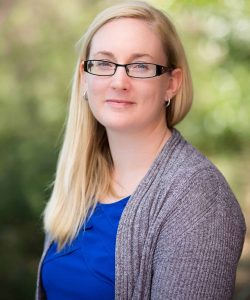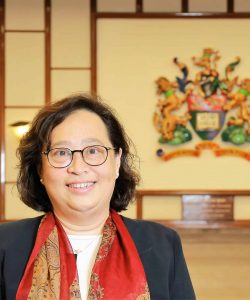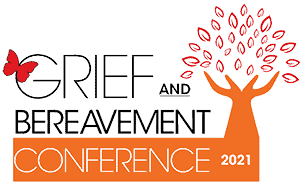Overseas Speakers

Associate Professor Lauren BREEN
Lauren J. Breen, Ph.D., is an Associate Professor in psychology at Curtin University in Perth, Australia. Her award-winning research centres on issues of grief and loss across the lifespan, for families and communities, and for health and social care professionals. Lauren has authored over 130 peer-reviewed journal articles and book chapters. She is a Fellow of the Australian Psychological Society and a Fellow in Thanatology: Death, Dying and Bereavement. She is a member of the International Work Group on Death, Dying and Bereavement; a Board Member of the Australian Centre for Grief and Bereavement and of Lionheart Camps for Kids; and Managing Editor of Death Studies.
Closing Keynote
Bereavement Support in Australia: Weaving Care Through Health and Community Partners
Australia’s research, policy, and practice in bereavement care have been substantial. Lauren will draw from her work and that of several colleagues and collaborators to provide an overview of some of these contributions to models, measures, methods, and practice. The public health approach to bereavement care, barriers of and facilitators to bereavement assessment in palliative care, and the promotion of grief literacy are just some of the topics that will be weaved into the presentation. Australia has world-leading expertise in bereavement care and potential for greater advances in bereavement care in the future.

Professor Susan CADELL
Professor Susan Cadell, PhD, RSW is a social work researcher and Professor in the School of Social Work at Renison University College at the University of Waterloo (Kitchener-Waterloo, Ontario, Canada). Susan’s research concerns death, dying and bereavement, and in particular positive outcomes of caregiving and grief. Susan’s most recent projects are about grief in COVID-19, post Medical Assistance in Dying (MAiD), and healing tattoos.
Synopsis:
Plenary Session 1 – From Research To Practice: The Forward Journey
Grief Literacy: What Is It and What Does It Look Like?
The compassionate communities movement is a public health approach that challenges us to move death and dying out of institutions and increase our death literacy. Grief is only marginally mentioned in the movement and in relation to death literacy. Our international group defined grief literacy and imagined what a grief literate society would look like. Grief literacy augments the concept of death literacy, thereby further enhancing the potential of the compassionate communities approach. It is a much-needed model for all, especially in light of the global COVID-19 pandemic.

Professor Amy CHOW
Amy Y. M. Chow is a Professor and the Head of Department of the Department of Social Work and Social Administration, The University of Hong Kong. She is the Director of the Jockey Club End-of-Life Community Care Project and the Master of New College of the University. With her background as a registered social worker specialising in bereavement counselling, she is the founder of the first community based bereavement counselling centre in Hong Kong. She is also the Chairperson of the International Workgroup on Death, Dying and Bereavement and the former Secretary of the Association for Death Education and Counselling. Recently, she received the Association for Death Education and Counselling 2020 Research Recognition Award.
Synopsis:
Breakout Session A2 – Caregiving And Grief
Pre-Death Caregiving and Post-Death Grief: Protective or Risk Factor?
Bereavement care is an integral part of palliative care. It focuses on supporting the family members even after the death of patients. Though the family members are palliative care recipients, they are caregivers for the patients most of the time. Caregiving, in particular the burden and intensity, is usually considered as a risk factor of post-death bereavement outcomes. However, research reported contradictory findings between pre-death caregiving and post-death bereavement outcomes in studies with different populations. It is postulated that cultural and social contextual factors, particularly the values towards caregiving, death and dying, affect the relationship between caregiving and bereavement outcome. In this presentation, empirical studies in studying the relationship between caregiving and bereavement will be introduced. Secondary data analysis on an evaluative study of a community end-of-life care in Hong Kong will be shared in understanding this specific relationship.

Professor LEE Yuh Chain (LI Yu-Chan)
Professor Lee Yuh Chain (Li Yu-Chan) graduated from National Taiwan Normal University with both Master and Doctorate Degrees in Education Psychology and Counselling. Her academic expertise lies in grief counselling, psycho-oncology as well as healthcare counselling and psychotherapy. Her professional accreditation spans from counselling psychology, counselling supervision to healthcare counselling and communication. She devoted many years of her career to practice and teach counselling psychology, taking on different appointments with the National Taipei University of Nursing and Health Sciences which included Professor with their teaching faculty, Dean of Student Affairs, Director of Counselling Centre and Dean of the College of Human Development and Heath. Professor Lee also serves as the Chairman of one charity and two counselling psychology associations.
Synopsis:
Breakout Session B3 – Service Models and Competency Building
Taiwan’s Experience in Building Bereavement Support
Building bereavement support in Taiwan starts from the hospice for dying patients and extends to their families. Establishing hospice wards in hospitals, supporting bereavement care by cross-disciplinary hospice care among all wards and home-care, and with Taiwan’s regulation of “Hospice and Palliative Medical Care” and “Patient Autonomy Law”, patients and their families can share their autonomy of medical decision-making and prepare for bereavement support & grief care. Such support has enabled Taiwan to provide the highest quality of palliative care in Asia and is ranked as the sixth in the world.
Palliative care training for multi-professionals, including thanatology and grief counselling knowledge, provide bereavement support service in the hospital and community. There are bereavement care multi-services in universities and community, such as the Institute of Life & Death Education and Counselling, Grief Healing Garden, Grief Healing counselling centre, and after-death care from funeral homes or foundations and associations. There are many bereavement support and grief counselling services for special groups like survivors of disasters, and many models and resources of social support for bereavement and grief counselling care in Taiwan.

Mr Arnold LEUNG
Mr Arnold Leung is a registered social worker in Hong Kong. He is an advanced certified hospice and palliative social worker from the National Association of Social Workers, USA, and a fellow in Thanatology from the Association for Death Education and Counseling, USA. He started his work on life and death education, community palliative care, paediatric palliative care, and bereavement counseling since 2007. For the past thirteen years, he has served more than 800 bereaved families and dying patients, conducted more than 400 sessions of public talks as well as professional training, and provided at least 2,000 hours of clinical supervision to social workers as well as counselors of the service team. He is the founder of DEATHFEST and guest host of a life and death education radio programme at Metro Broadcast and Sooradio. He was the recipient of the Outstanding Social Workers Award in 2016.
In 2015, he founded and established the first DEATHFEST, a large-scale public event attended by about 10,000 participants over three days to promote life and death education.
Synopsis:
Breakout Session C2 – Grief And Death Literacy
Death Festival: The Many Ways to Engage in Death Conversations
Open discussion on death is always uneasy in the Chinese cultural community. In order to break through the taboo, DEATHFEST was first established in Hong Kong in 2015. It was a three-day community event that widely used art and music as a medium to facilitate public awareness on death and dying.
Around 10,000 people participated and the activities included presentations, art workshops, exhibitions, performances, concerts, and book clubs. Since then, the goal of DEATHFEST is to promote the development of life-and-death education in the global Chinese speaking community.
Today, there are three DEATHFEST in the world and they are DEATHFEST Hong Kong, DEATHFEST Malaysia, and DEATHFEST California-USA. In spring of 2021, three DEATHFEST collaborated and hosted the world’s first 34 hours marathon-style, virtual conference for the public named DEATHFEST world tour 2021. Finally, this event successfully connected twelve Chinese speaking countries or cities from Asia, Oceania, North America, and Europe.

Professor LIN Qi Yun (LIN Chi-Yun)
Professor Lin Qi Yun graduated from Taiwan’s Tunghai University with a PhD in Sociology. In 2001, she established the Research Institute of Life and Death Education and became its first Director. The institute evolved into the Department of Thanatology and Health Counselling in 2011 and Prof. Lin has since been its head of department at the National Taipei University of Nursing and Health Sciences (NTUNHS). Prof. Lin also sets up a Healing Garden and a Psychological Counseling Centre in the University where she leads students to directly deliver services in the community. In 2010, Prof. Lin became the dean for the School of Human Development and Health at the University. Prof. Lin was also appointed either as director, president or committee member with various societies in Taiwan. In addition to dedicating herself to the promotion of Thanatology, Life Education, Death Education, Grief Counseling and Suicide Prevention and other educational work, she has published dozens of relevant research papers, essays and books. Life and Death Education has also become an essential part of the University experience unique to NTUNHS. Prof. Lin has not only witnessed the development of Life and Death education, grief and bereavement support in Taiwan over the past 20 years, she has also held many international academic seminars in the past years, and actively promoted the development of Life and Death Education among Chinese societies in Asia-Pacific, gaining a worldwide reputation.
Synopsis:
Breakout Session C3 – Meaning Making In Loss And Grief
The Grief Healing Garden: Promoting Bereaved-Friendly Community Space
The Grief Healing Garden, also called the Healing Garden, symbolises a spiritual garden and was built to help people cope with their loss, grief, and life transitions. This garden is divided into three sections: the Self-Care Area, the Counselling Area, and the Garden of Reconciliation. A winding waterway which starts at the Tear Pool and ends at the Wish Pool runs through the Healing Garden. This is a process of finding a new balance among the changes that have occurred in people’s lives, reconstructing the relationship and meanings of the sad events they have experienced, reconciling with themselves, and then making a step towards restarting a new life.

Professor Robert A. NEIMEYER
Professor Robert A. Neimeyer is Professor Emeritus of the Department of Psychology, University of Memphis, maintains an active consulting and coaching practice, and also directs the Portland Institute for Loss and Transition. Neimeyer has published 30 books, including Routledge’s series on Techniques of Grief Therapy, and serves as Editor of Death Studies. The author of over 500 articles and chapters and a popular workshop presenter, he is currently working to advance a more adequate theory of grieving as a meaning-making process. In recognition of his contributions, he has been given Lifetime Achievement Awards by both the Association for Death Education and Counseling and the International Network on Personal Meaning.

Professor Margaret STROEBE
Professor Margaret Stroebe is Professor Emerita and research scholar at both the Department of Clinical and Health Psychology, Utrecht University, and the Department of Clinical Psychology and Experimental Psychopathology, University of Groningen, The Netherlands. She has specialised in the field of bereavement research for many years. With Henk Schut she developed the Dual Process Model of Coping with Bereavement. Her book publications include “Bereavement in Later Life: Coping, Attachment, and Developmental Influences” (2007) with Robert Hansson and an edited volume with Robert Hansson, Henk Schut and Wolfgang Stroebe: “Handbook of Bereavement Research and Practice: Advances in Theory and Intervention” (2009). Most recently she has edited “Complicated Grief: Scientific Foundations for Health Care Professionals” (with Henk Schut and Jan van den Bout). Her honours include an Honorary Doctorate from the University of Louvain-la-Neuve, Belgium, the Scientific Research Award of the American Association of Death Education and Counseling, in the U.S.A., and the title in 2011 of Officer of the Order of Orange Nassau, in the Netherlands.

